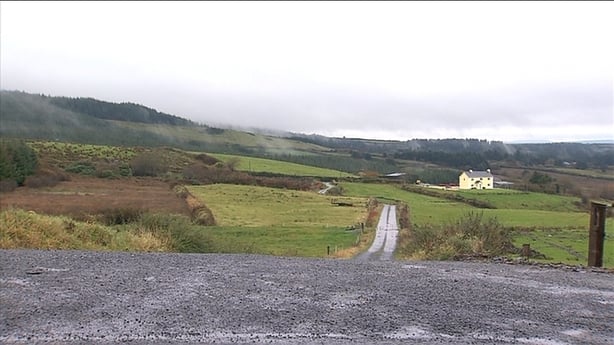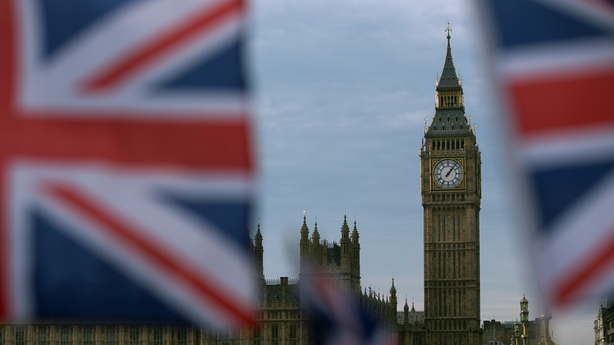When Irish Ambassador to the US John Joseph Hearne sent a box of shamrock to President Truman at the White House in 1952, he initiated a long tradition of Ireland-US relations, writes Justin McCarthy of RTÉ's Political Staff.
But when Taoiseach Enda Kenny continues this tradition in March, by visiting President Donald Trump at the White House, he may have some tricky diplomatic issues to raise.
Opposition parties have said the visit this year cannot be "all smiles and shamrocks".
There is an onus on the Taoiseach to raise concerns about some of the executive orders President Trump has signed in his first days in office.
During Leaders' Questions in the Dáil, both Micheál Martin and Gerry Adams raised the Taoiseach's visit to Washington.
Mr Martin said the ban on citizens from seven, mostly Muslim countries, travelling to the US would embolden others to act against people of the Muslim faith.
He also called on the Taoiseach to support an all-party motion from the Dáil criticising President Trump's executive order.
In response, Mr Kenny said in Ireland 5,000 people from the countries involved were granted Irish citizenship.
He said for those who hold dual nationality, they are entitled to be admitted to the US if they present their Irish passport while travelling.
"Clarification has now been received that if one of those persons present their Irish passport they will not be refused entry" he said.
In response to proposals for an all-party motion criticising the Trump executive order, Mr Kenny said: "If an all-party motion can be drafted, I have no objection to it".
Sinn Féin leader Gerry Adams said his party would also like to see an all-party motion.
He said President Trump's ban was a "subversion of acceptable standards of decency and equality" and he criticised the Taoiseach for failing to raise the matter with the US president.
"It is disappointing that you haven't yet expressed about this matter. You should have made it clear that you will not be implementing this executive order at preclearance facilities in Dublin or Shannon."
In response, the Taoiseach said diplomatic contact has been made with the US and the matter was of serious concern for Irish people holding dual nationalities.
Referring to Ireland he said "no person is vulnerable to being deported from here, because under the preclearance act, if someone is turned back, and they are looking for refugee status, they are then dealt with under Irish law".
However he said the Government wanted to keep the preclearance facilities in place at Dublin and Shannon Airport.
Rural schemes

The issue of rural employment was raised by Michael Collins of the Rural Independent's group.
He said there were new restrictions preventing community and voluntary groups from recruiting people through various work schemes, because of a new system for dealing with people who are out of work.
He said for the past 12 months "for many voluntary groups to survive they need a work force like those available on a number of schemes, like the rural social scheme, the CE schemes, the Tús schemes".
"For the past 12 months it has become more and more difficult for community and voluntary groups to access workers, particularly in rural Ireland where rules and guidelines are taking over from what was work on the ground before."
"It can't be more simple, a person who was in receipt of a social welfare payment and who can't get another type of employment should be able to get a work scheme and stay on it until employment of another type is found for that person", he said.
Taoiseach Enda Kenny said "the systems have changed where people who are looking for employment, or looking for opportunities, to sit down directly with somebody to see what might be appropriate for them, or in their best interests, to allow people to get off social protection and into a better system, by having a job and wage".
Brexit

The final question during Leaders' Questions was asked by Stephen Donnelly who wanted to know why Irish politicians were not capitalising on the opportunities which might arise from Brexit.
Mr Donnelly said that while Brexit poses a serious risk, there were also a lot of opportunities associated with it.
He said many companies had indicated that they would move from London and in the banking and financial services sector alone there are 35,000 possible jobs.
However, he said the Government was failing to capitalise on this: "In spite of all of this, in spite of the real opportunism, the word that I'm getting from senior execs working in London is that they haven't had word from Irish politicians.”
In response, Mr Kenny said he wanted to assure Mr Donnelly that Ireland is very active in this field.
He said many queries had come into the Central Bank as finance houses decide where they are going to move.
"Let me assure you - we are not behind the scenes here in talking to anyone, in presenting our case to those with a viable opportunity. It has been confirmed to me that particular companies wish to move to this country and they will make their positions known formally," he said.
Mr Kenny said that he would do a deal with Mr Donnelly.
"You give me the names of the business leaders you have spoken to, and I will see to it that they are called together. Then they will know that what they are saying to you has been inadequate in terms of its veracity and extent."







